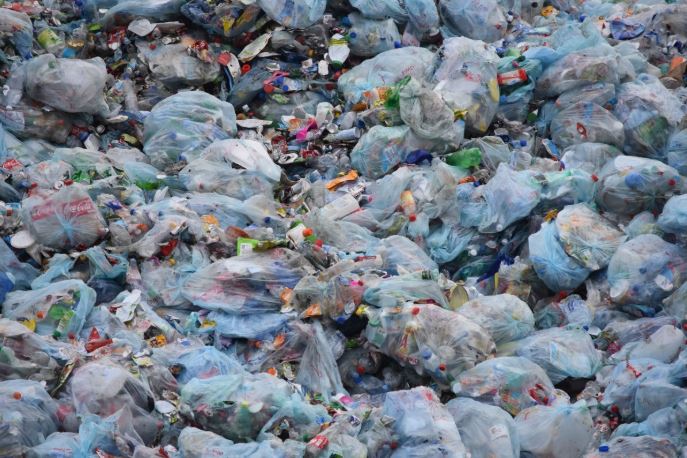Brussels' activist Artem Mozgovoy (32) has challenged himself to live 100 days without plastic, and shares his experiences with his followers on social media and his blog.
"When I was on holiday in Greece, three years ago, after several hours of hiking I reached an isolated beach that was full of plastic trash. I wondered where it came from, if it was even Greek trash, or if it washed up from another part of the world. I really started thinking about it, and right there, I promised myself that I would stop using plastic," said Mozgovoy to The Brussels Times.
He did not immediately become as radical as living completely without plastic. He swapped shopping in mass-market stores for secondhand shops and stopped eating meat, partly because it was wrapped in plastic. "I tried to avoid as much plastic as I could, and yet, at the end of every week, I still had a plastic bag full of plastic trash," he said.
After that, he decided to challenge himself more radically to 100 days without buying any plastic at all. "I decided to share my experience on social media, so I could hopefully inspire some other people," he said.
Since humanity has started producing plastic in the early 1950s, more than eight billion metric tonnes have been produced. Globally, we use about one million plastic bottles every minute. Coca Cola alone produces about 110 billion plastic bottles every year, according to a study by the University of Georgia. Only 9% of those eight billion metric tonnes of plastic has been recycled since then. The rest has been incinerated, buried, and about half of it has been dumped into the sea.
“These numbers really shocked me. I thought, we can wait for someone to step up, we can demand that someone does something about this, we can vote for the green parties, but in the end, it is still our own plastic. We can take control. Imagine if one day, all consumers would say, ‘I do not want to buy Coca Cola anymore until they do something about their plastic waste’. They will react immediately. The only things that are missing are public awareness and information,” said Mozgovoy. “So I thought, why not just do it? We have more power than we think,” he added.
Related News
- L'Oréal to invest in creating first cardboard-based cosmetics packaging
- The Ocean Plastics Lab exhibition arrives in Brussels
- Stopping plastic production by 2030 is 'unrealistic' says Belgian waste federation
In practice, however, living without plastic is not as easy as it seems. “There are shampoo bars, bamboo toothbrushes and even tooth powder, if you want to avoid the plastic tubes, but groceries are difficult,” he said.
"Most of our plastic footprint comes from our groceries. Supermarkets equal plastic. It seems as if they cannot exist without wrapping every single cucumber in plastic. I went to my local Delhaize with my own cloth bag looking for plastic-free products, and I just left it empty, there was nothing I could buy," he added.
“I don’t want all the supermarkets in the world to go bankrupt, but once we start making these choices consistently, they will have to adapt and accommodate our needs and desires. If we stop buying it, they will stop selling it,” Mozgovoy said, adding that local corner shops are good alternatives.
His goal is primarily to inform people of how much plastic we use. "I am convinced that most people love nature. The reason we have been polluting everything with plastic is not that we hate nature, it is that we have not been conscious about our plastic use," he said. If more people would be informed and shown that there are easy, inexpensive alternatives, they would act differently, according to him.
"Some things, like mobile phones, computers or eyeglasses, we obviously cannot avoid, but all single-use, avoidable, unnecessary plastic just has to go," he said.
Maïthé Chini
The Brussels Times

